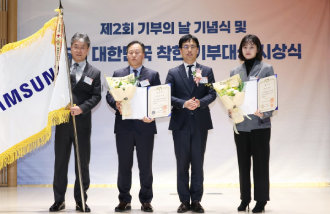Removing Paper Chits
It is expected that various kinds of chits and insurance bills that credit card companies, banks, and insurance companies have to keep will be changed into electronic documents.
On June 18, the government decided to carry out its plan for promoting the use of electronic documents following the meeting at the Gwacheon Government Complex between the ministers of Economy held by Lee Hun-jae, deputy prime minister of Finance and Economy.
On this day, the government enacted a law that promotes the usage of electronic documents and decided to dramatically reduce the cost of producing and preserving papers by consolidating 30 out of 117 laws collectively, which stipulate the obligation of using paper documents.
The government also revised the other 87 laws, which were exempt from collective consolidation. In addition, if a superior law allows the usage of electronic documents, the government decided to enact or revise rules or announcements to embody this.
The government also plans to prepare a counterplan to prevent forgery by hacking or virus in order to elevate security and the reliance of the documents and to introduce an official electronic endorsement system or review the establishment of an official depository for electronic documents.
For this, the government plans to prepare a counterplan for fostering specific electronic documents by division until the beginning of September.
According to the Ministry of Commerce, Industry, and Energy, banks have spent 150 billion won on producing, circulating, and maintaining paper documents every year, and credit card companies have spent 120 billion won.
However, credit card receipts issued to individuals will still remain as paper documents even when this plan becomes effective. Meanwhile, the government decided to select a working-level designer and a new generation designer in order to enhance the competitiveness of the service industry and support them to enter into overseas fields. Moreover, it decided to change the current screening system, which was applied when placing an order of engineering services including social overhead capital and equipment into the contracting method by step-by-step negotiations.
Ki-Jeong Ko koh@donga.com
Headline News
- South Korea’s migrant population surpasses five percent
- U.S. acting ambassador affirms joint exercises with South Korea
- China and Japan escalate dispute over naval radar incident
- Uptempo claims D3 Seoul basketball championship convincingly
- Democratic Party pushes insurrection court despite opposition warnings







